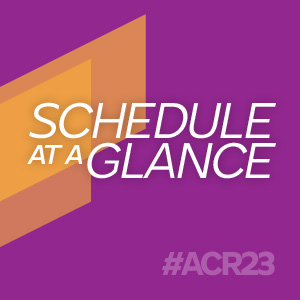Abstract Session
Systemic lupus erythematosus (SLE)
Session: Abstracts: SLE – Treatment I: Renal (0781–0786)
0783: Tolerability of CAR T Cell Therapy in Autoimmune Disease
Sunday, November 12, 2023
2:30 PM - 2:40 PM PT
Location: Ballroom 20D
- JT
Jule Taubmann, MD, BSc
Universitätsklinikum Erlangen
Erlangen, GermanyDisclosure information not submitted.
Presenting Author(s)
Jule Taubmann1, Fabian Müller2, Michael Aigner3, Ioanna Minopoulou4, Johannes Knitza5, Dagmar Werner6, Christina Bergmann7, Gerhard Kroenke8, Andreas Mackensen3 and Georg Schett6, 1Department of Internal Medicine 3, Rheumatology and Immunology, Universitätsklinikum Erlangen and Friedrich-Alexander-Universität Erlangen Nürnberg, Erlangen, Germany, 2Friedrich Alexander Universität Erlangen-Nürnberg and Universitätsklinikum Erlangen, Erlangen, Germany, 3Department of Internal Medicine 5, Hematology and Oncology, Universitätsklinikum Erlangen and Friedrich-Alexander-Universität Erlangen Nürnberg, Erlangen, Germany, 4Friedrich-Alexander-Universität (FAU) Erlangen-Nürnberg & Universitätsklinikum Erlangen, Department of Internal Medicine 3 - Rheumatology and Immunology / Deutsches Zentrum Immuntherapie, Erlangen, Germany, 5Department of Internal Medicine 3 Rheumatology and Immunology, Friedrich-Alexander-University Erlangen-Nürnberg, University Hospital Erlangen, Erlangen, Germany, 6FAU Erlangen-Nürnberg, Erlangen, Germany, 7Department of Internal Medicine 3-Rheumatology and Immunology, Friedrich-Alexander-University Erlangen-Nürnberg (FAU) and University Hospital Erlangen, Erlangen, Germany, 8Charite Berlin, Berlin, Germany
Background/Purpose: We have previously shown that CD19 CAR T cell therapy can lead to improvement of severe forms of B cell mediated autoimmune disease including SLE (1,2), idiopathic inflammatory myopathy (IIM) (3) and systemic sclerosis (SSc) (4). In hematologic malignancies, CD19 CAR T cell therapy is often associated with side effects such as cytokine release syndrome (CRS) and immune effector cell-associated neurotoxicity syndrome (ICANS). We therefore addressed the incidence, severity and reversibility of CRS and ICANS in patients with autoimmune disease receiving CD19 CAR T cell therapy.
Methods: Patients with active and treatment-refractory SLE, IIM and SSc received a single infusion of 1 million CD19 CAR T cells manufactured from autologous T cells and transfected with the lentiviral vector MB-CART19.1 (Miltenyi) encoding the CD19 CAR. Immunosuppressive treatment was stopped before CAR T cell infusion. Standard conditioning treatment (1g/m2 cyclophosphamide, 75 mg fludarabine) was administered before CAR T cell infusion. Incidence, severity and reversibility of CRS and ICANS were monitored during the first 14 days after infusion. CRS was graded as 1 (fever), 2 (hypotension), 3 (one vasopressor, high-ventilation) and 4 (multiple vasopressors, positive airway pressure). ICANS was graded as 1 (dizziness, fatigue), 2 (somnolence, delirium), 3 (spoor, seizures) and 4 (coma). In addition, reversibility of CRS and ICANS in response to anti-pyretic drugs and/or tocilizumab was documented.
Results: Between March 2021 and June 2023 15 patients (mean ± SD age: 35,7± 11,2 years) received treatment with CD19 CAR T cell therapy (8 SLE, 3 IIM and 4 SSc). SLE patients were younger (28.0 ± 7.2) than IIM (43.0 ± 1.0) and SSc patients (45.7 ± 11.1 years). CRS was observed in 60% (9/15) and was graded mild (grade 1) in 8/9 cases (4 SLE, 2 IIM and 2 SSc) and moderate (grade 2) in 1/9 cases (1 IIM). The moderate CRS was based on pre-existing dyspnea based on interstitial lung disease, which worsened during the fever bout and required oxygen treatment for one day. CRS events happened between day 1 and day 4 after CAR T cell therapy. CRS resolved fast after using anti-pyretic drugs. Tocilizumab was given in 40% (6/15) of the patients, mostly as single infusion, which lead to immediate resolution of CRS. Only one patient received three tocilizumab infusions. Mild ICANS (1IIM) was observed in one patient, presenting with dizziness 7 days after infusion. The patient received a short course of glucocorticoids, which led to resolution of ICANS. The cases of CRS grade 2, ICANS grade 1 and repeated tocilizumab treatment occurred in different patients.
Conclusion: Overall safety of CD19 CAR T cells therapy in autoimmune disease appears to be high. Low-grade CRS is frequent but can be managed well. Higher grade CRS was not found and seems to be infrequent. Also ICANS appears to be infrequent in patients with autoimmune disease. Tolerability of CD19 CAR T cell therapy seems to be similar in SLE, IIM and SSc and no influence of age was observed.
1. Mougiakakos D, et al. N Engl J Med. 2021; 385:567-9.
2. Mackensen A, et al. Nat Med. 2022; 28:2124-32.
3. Müller F, et al. Lancet 2023;401: 815-818.
4. Bergmann C et al., Ann Rheum Dis 2023, May 5;ard-2023-223952.
J. Taubmann: None; F. Müller: AbbVie, 6, AstraZeneca, 1, 5, 6, Bristol Myers Squibb, 1, 6, Janssen, 6, KITE, 1, 6, Miltenyi Biomedicine, 1, 6, Novartis, 1, 6, Sobi, 6; M. Aigner: Kosmas Therapuetics, 8, Kyverna, 5, Miltenyi Biomedicine, 2, 7, Miltenyi Biotec, 6; I. Minopoulou: AbbVie/Abbott, 6; J. Knitza: None; D. Werner: None; C. Bergmann: Boehringer-Ingelheim, 2, 5, Janssen, 2; G. Kroenke: None; A. Mackensen: BioNTech, 1, Bristol-Myers Squibb(BMS), 1, KITE/Gilead, 1, 6, Kyverna, 5, Miltenyi Biotech, 5; G. Schett: None.
Background/Purpose: We have previously shown that CD19 CAR T cell therapy can lead to improvement of severe forms of B cell mediated autoimmune disease including SLE (1,2), idiopathic inflammatory myopathy (IIM) (3) and systemic sclerosis (SSc) (4). In hematologic malignancies, CD19 CAR T cell therapy is often associated with side effects such as cytokine release syndrome (CRS) and immune effector cell-associated neurotoxicity syndrome (ICANS). We therefore addressed the incidence, severity and reversibility of CRS and ICANS in patients with autoimmune disease receiving CD19 CAR T cell therapy.
Methods: Patients with active and treatment-refractory SLE, IIM and SSc received a single infusion of 1 million CD19 CAR T cells manufactured from autologous T cells and transfected with the lentiviral vector MB-CART19.1 (Miltenyi) encoding the CD19 CAR. Immunosuppressive treatment was stopped before CAR T cell infusion. Standard conditioning treatment (1g/m2 cyclophosphamide, 75 mg fludarabine) was administered before CAR T cell infusion. Incidence, severity and reversibility of CRS and ICANS were monitored during the first 14 days after infusion. CRS was graded as 1 (fever), 2 (hypotension), 3 (one vasopressor, high-ventilation) and 4 (multiple vasopressors, positive airway pressure). ICANS was graded as 1 (dizziness, fatigue), 2 (somnolence, delirium), 3 (spoor, seizures) and 4 (coma). In addition, reversibility of CRS and ICANS in response to anti-pyretic drugs and/or tocilizumab was documented.
Results: Between March 2021 and June 2023 15 patients (mean ± SD age: 35,7± 11,2 years) received treatment with CD19 CAR T cell therapy (8 SLE, 3 IIM and 4 SSc). SLE patients were younger (28.0 ± 7.2) than IIM (43.0 ± 1.0) and SSc patients (45.7 ± 11.1 years). CRS was observed in 60% (9/15) and was graded mild (grade 1) in 8/9 cases (4 SLE, 2 IIM and 2 SSc) and moderate (grade 2) in 1/9 cases (1 IIM). The moderate CRS was based on pre-existing dyspnea based on interstitial lung disease, which worsened during the fever bout and required oxygen treatment for one day. CRS events happened between day 1 and day 4 after CAR T cell therapy. CRS resolved fast after using anti-pyretic drugs. Tocilizumab was given in 40% (6/15) of the patients, mostly as single infusion, which lead to immediate resolution of CRS. Only one patient received three tocilizumab infusions. Mild ICANS (1IIM) was observed in one patient, presenting with dizziness 7 days after infusion. The patient received a short course of glucocorticoids, which led to resolution of ICANS. The cases of CRS grade 2, ICANS grade 1 and repeated tocilizumab treatment occurred in different patients.
Conclusion: Overall safety of CD19 CAR T cells therapy in autoimmune disease appears to be high. Low-grade CRS is frequent but can be managed well. Higher grade CRS was not found and seems to be infrequent. Also ICANS appears to be infrequent in patients with autoimmune disease. Tolerability of CD19 CAR T cell therapy seems to be similar in SLE, IIM and SSc and no influence of age was observed.
1. Mougiakakos D, et al. N Engl J Med. 2021; 385:567-9.
2. Mackensen A, et al. Nat Med. 2022; 28:2124-32.
3. Müller F, et al. Lancet 2023;401: 815-818.
4. Bergmann C et al., Ann Rheum Dis 2023, May 5;ard-2023-223952.
J. Taubmann: None; F. Müller: AbbVie, 6, AstraZeneca, 1, 5, 6, Bristol Myers Squibb, 1, 6, Janssen, 6, KITE, 1, 6, Miltenyi Biomedicine, 1, 6, Novartis, 1, 6, Sobi, 6; M. Aigner: Kosmas Therapuetics, 8, Kyverna, 5, Miltenyi Biomedicine, 2, 7, Miltenyi Biotec, 6; I. Minopoulou: AbbVie/Abbott, 6; J. Knitza: None; D. Werner: None; C. Bergmann: Boehringer-Ingelheim, 2, 5, Janssen, 2; G. Kroenke: None; A. Mackensen: BioNTech, 1, Bristol-Myers Squibb(BMS), 1, KITE/Gilead, 1, 6, Kyverna, 5, Miltenyi Biotech, 5; G. Schett: None.



